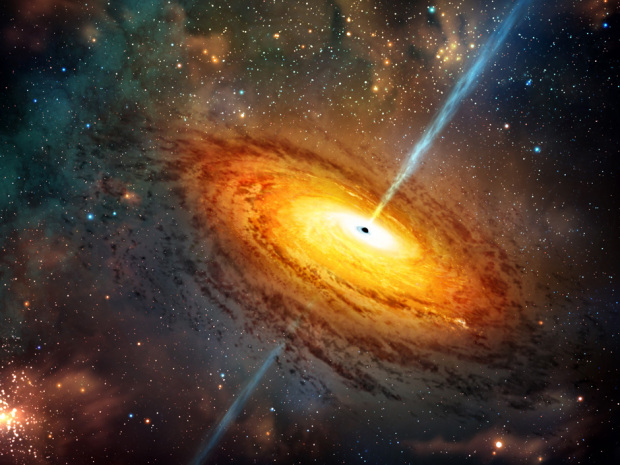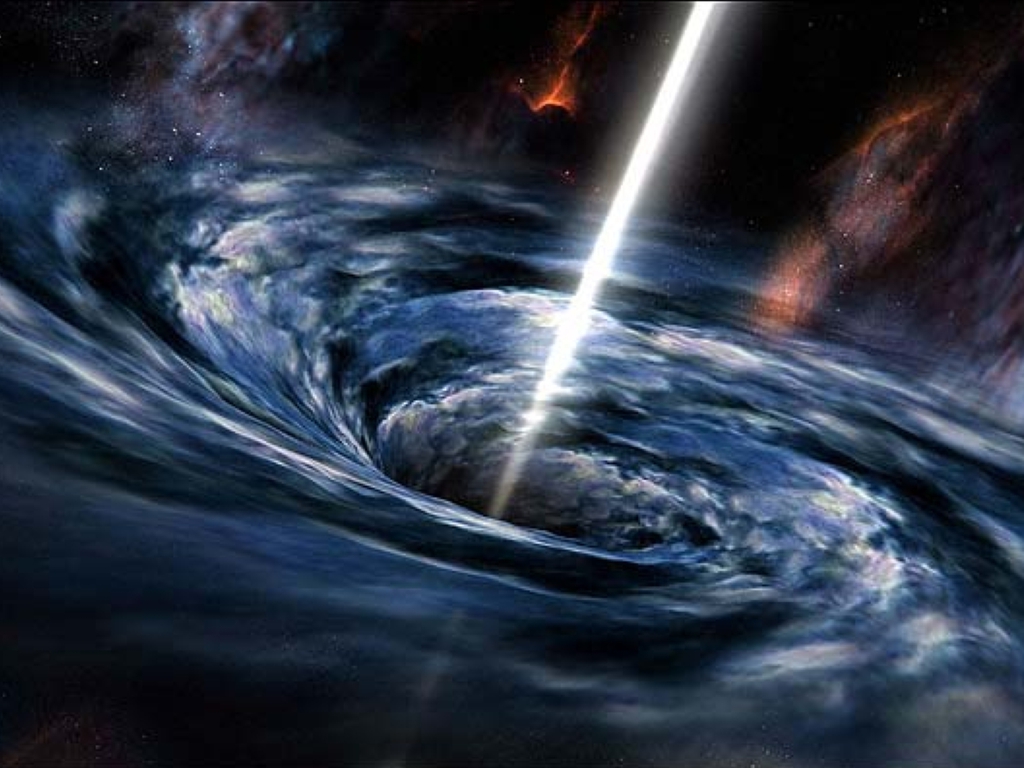Introduction
Chris Bon
Web Project for Physics 211 Fall 2014
Section F01
What caused the
universe into existence? What was the cause of this cause?
Whatever beginning we can imagine must itself have a cause
in an endless chain of causality. The end of time is also
impossible to imagine, and any
attempt to limit space inside any bounds is futile. We can
reasonably assume therefore, that space and time is
infinite, limitless. But if space-time is infinite in every
direction, past, and present, how is it that we are in the
present moment since it would take an infinite amount of
time to reach today?
Scientists determine the age and size of
the universe by looking out into the distant stars. It is
interesting to find that the farther out we look into the
universe, the closer we can get to the boundary of both
space and time. But we will never be able to find out the
limit of the universe as we are limited by the speed of
light. What I mean by this, is that since the Big Bang
happened approximately 13.8 billion years, we can only see
out into the universe about
130,000,000,000,000,000,000,000,000 meters away (calculated
by multiplying
the age of the universe by a light-year, or the distance
that light travels in one year). This is a
stupendously astronomical distance, but this distance
becomes zero when we consider an infinite universe.
In an infinite universe, there is no
conception of boundaries that does not contradict our notion
of infinite. But that is exactly what I am attempting to
show in this project.
Thesis
Because the universe is infinite, the
only way to reach its bounds would be to transform this
infinite into a singularity or move at an infinite speed.
But there is such a thing that can allow us to reach the
very limits of space. What I want to prove is that the
boundary of the universe is the event horizon of a
black hole. The event horizon is a spherical
ellipse around a black hole demarcating the point of no
return. Another way to put it is that the escape velocity
required to escape from a black hole at the event horizon
is greater than the speed of light, which is equivalent to
infinite speed.
I started thinking
about black holes in this way when I learned about the
extreme distortion in the fabric of space-time caused by
black holes. I think this is a good place to start. I will
break this distortion down into its spatial and temporal
components for those of you who do not know about these
distortions, and then I will use this idea to elucidate my
theory. Then I will continue with my ideas about light and
the beginning and end of space-time.
As far as I know,
no one else has thought of black holes in this way, so I
hope you read through all of it because I put in a lot of
time into this project. Well, let's begin with quick
review of space-time and how it can be affected by
gravity.


